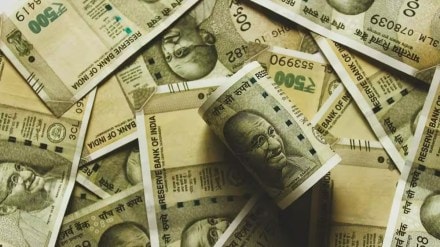The government’s food subsidy expenses for FY24 were around Rs 2.2 trillion, Rs 8,000 crore more than the revised estimate (RE), and the outgo for FY25 would need to revised upward by more than Rs 35,000 crore from the budget estimate (BE), an official source told FE.
The initial projection of the subsidy outgo by the ministry of food and public distribution for 2024-25 is Rs 2.42 trillion, the source said, citing the likely rise in MSPs of wheat and rice In the interim budget for 2024-25, the government had provisioned Rs 2.05 trillion under the food subsidy head.
“The expenses under food subsidy for FY25 will be reflected in the Budget to be presented in July,” the official said.
Over the last two fiscal years, MSPs of paddy and wheat witnessed an increase in the range of 5-7% annually.
The FCI’s economic costs for rice and wheat for 2023-24 is estimated to have increased Rs 39.18/kg and Rs 27.09/kg, from Rs 35.62/kg and Rs 24.67/kg respectively in 2021-22. The economic cost of rice and wheat for 2024-25 is estimated currently at Rs 39.75/kg and Rs 27.74/kg respectively.
For 2023-24, Rs 1.4 trillion under food subsidy has been routed through the Food Corporation of India (FCI) and the balance Rs 80,000 crore was allocated to those states that follow decentralised procurement system. The additional amount over RE was necessitated by the “free ration scheme” that did away with even the marginal payments by the beneficiary population.
The FCI itself has projected an expense of Rs 1.55 trillion under for FY25.
Currently, FCI holds rice stocks of close to 30 million tonne (MT) of rice against the buffer of 13.58 MT for April 1. The stock does not include 26.56 MT receivable from the millers.
The government has extended Pradhan Mantri Garib Kalyan Anna Yojana (PMGKAY) or free ration scheme for five years till end of 2028 which would cost the exchequer around Rs 11.8 trillion due to a projected increase of 7%-8% in the MSP of the relevant crops – rice and wheat and coarse grains– , and other costs such as transportation, storage and incidentals.
Under the PMGKAY, 5 kg of rice or wheat are provided free of cost monthly to each of the 801 million beneficiaries. Before January 2023, marginal prices were paid by the beneficiaries, and the shift to a regime of completely free supply of grains raised the cost by 3-4%.
The food subsidy bill had skyrocketed in FY22-FY23 because of a scheme that doubled the subsidised food grains supplies. In addition to 5 kg of grain per head free under PMGKAY and beneficiaries under the National Food Security Act were provided foodgrains at highly subsidised rates of Rs 3/kg and Rs 2/kg for rice and wheat, respectively.
The FCI in collaboration with state agencies procures and distributes around 55 MT of wheat and rice annually under PMGKAY through 530,000 fair price shops across the country. Currently, the scheme is being implemented across all 36 states and Union Territories.
Sources said for the first time in the many years, the FCI has not availed the provision of short-term credit to meet its operational expenses in the current fiscal year, due to timely release of funds towards food subsidy expenses. The government has increased the authorized capital of the FCI by 110% to Rs 21,000 crore from Rs 10,000 crore aimed at reducing borrowing costs of the corporation
